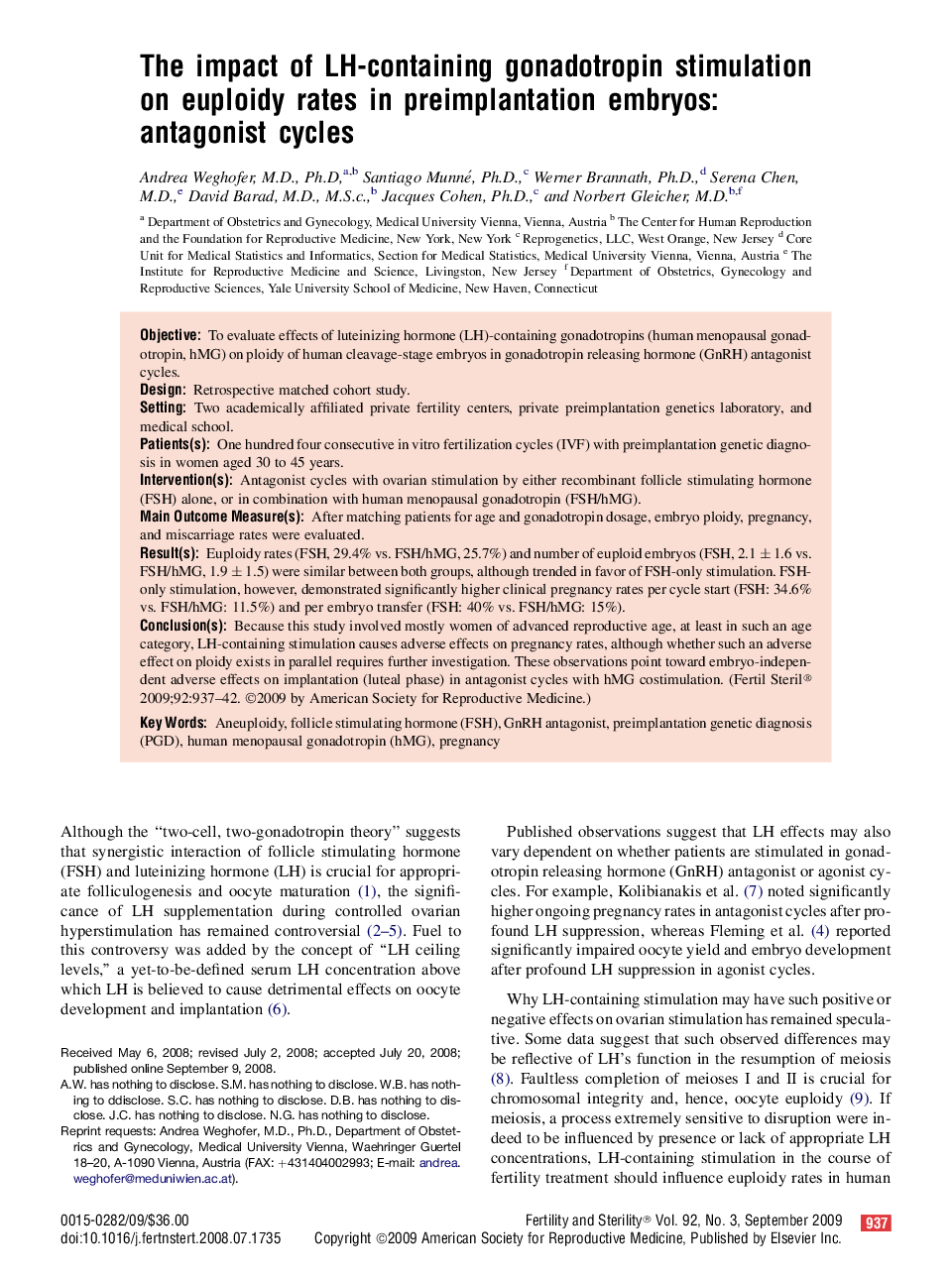| Article ID | Journal | Published Year | Pages | File Type |
|---|---|---|---|---|
| 3933843 | Fertility and Sterility | 2009 | 6 Pages |
ObjectiveTo evaluate effects of luteinizing hormone (LH)-containing gonadotropins (human menopausal gonadotropin, hMG) on ploidy of human cleavage-stage embryos in gonadotropin releasing hormone (GnRH) antagonist cycles.DesignRetrospective matched cohort study.SettingTwo academically affiliated private fertility centers, private preimplantation genetics laboratory, and medical school.Patients(s)One hundred four consecutive in vitro fertilization cycles (IVF) with preimplantation genetic diagnosis in women aged 30 to 45 years.Intervention(s)Antagonist cycles with ovarian stimulation by either recombinant follicle stimulating hormone (FSH) alone, or in combination with human menopausal gonadotropin (FSH/hMG).Main Outcome Measure(s)After matching patients for age and gonadotropin dosage, embryo ploidy, pregnancy, and miscarriage rates were evaluated.Result(s)Euploidy rates (FSH, 29.4% vs. FSH/hMG, 25.7%) and number of euploid embryos (FSH, 2.1 ± 1.6 vs. FSH/hMG, 1.9 ± 1.5) were similar between both groups, although trended in favor of FSH-only stimulation. FSH-only stimulation, however, demonstrated significantly higher clinical pregnancy rates per cycle start (FSH: 34.6% vs. FSH/hMG: 11.5%) and per embryo transfer (FSH: 40% vs. FSH/hMG: 15%).Conclusion(s)Because this study involved mostly women of advanced reproductive age, at least in such an age category, LH-containing stimulation causes adverse effects on pregnancy rates, although whether such an adverse effect on ploidy exists in parallel requires further investigation. These observations point toward embryo-independent adverse effects on implantation (luteal phase) in antagonist cycles with hMG costimulation.
